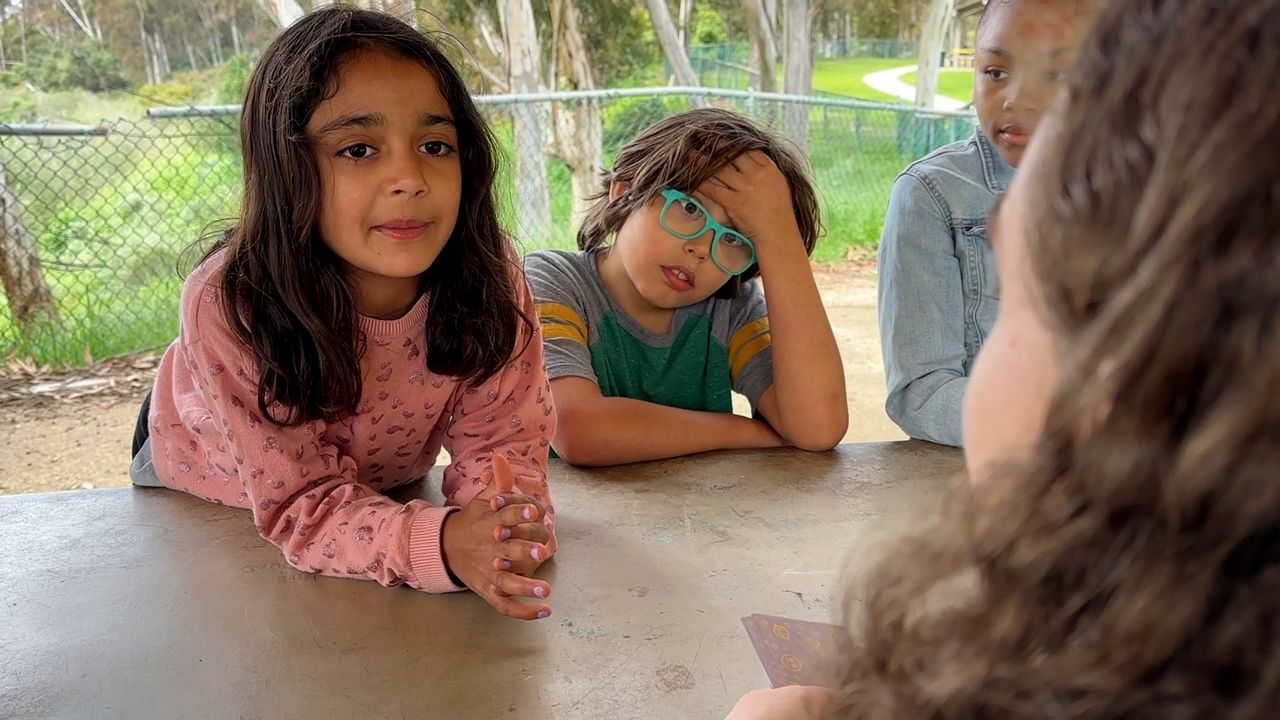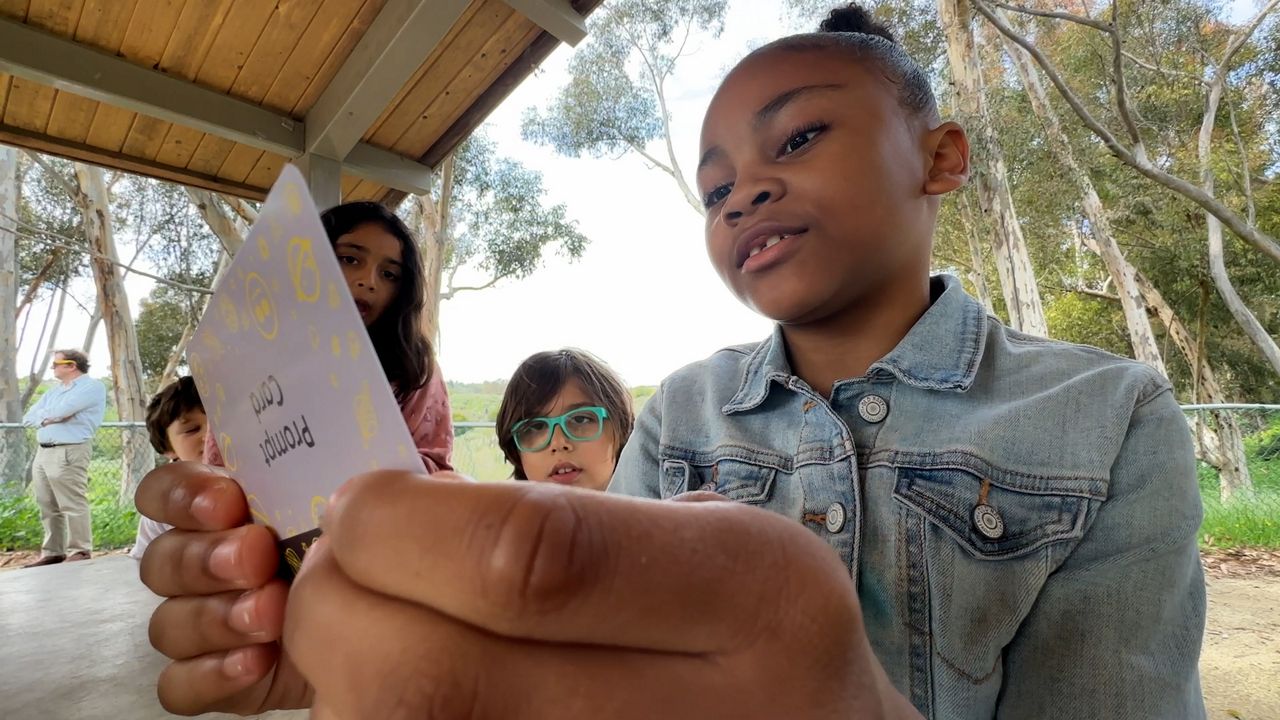LOS ANGELES — Children have a lot of feelings, but they don’t always have the words to describe them.
When asked what it feels like to be excited, seven-year-old Vachi quickly switched from a verbal answer to acting it out with her hands and facial expressions.

She and her older brother Kiaan are homeschooled and attend a program called Creative Learning Place where, among things, they learn social skills. Director Karen Golden chooses activities that teach the students how to express themselves and how to see the expressions of others.
One tool she recently began using is a card game called EQJOY. Part charades, part discussion, it allows children, either with a teacher or with a parent, to examine what they feeling while engaged in play. The nonprofit is under the umbrella of the company The Art and Science of Joy.
“I think this really helps with empathy,” spokesperson Shari Alyse said of the benefits of having young kids understand and talk about emotions. “Research shows that it actually makes them more socially competent. It allows them to really understand not only themselves but each other. It really enables them to be able to verbalize, to label, to understand and manage their emotions through the power of play.”
The practice of play therapy actually dates back to the first half of the twentieth century. Dr. Violet Mesrkhani is a licensed clinical psychologist and a board member with the California Association for Play Therapy. At her practice, Harmony Psychotherapy in Glendale, she sees every day how the pandemic took a large toll on children’s mental and emotional health.

“The pandemic clearly was really kind of trauma for many children,” she explained. “For some children, it’s very difficult to experience joy again. And so that’s where play therapy would really be very helpful.”
What she’s seeing now, more than prior to the pandemic, is a lot of anxiety in children. “Worries about death, worries about social interaction,” she said. “Being together, talking to people, was more difficult for them.”
She describes the isolation of the pandemic as a kind of trauma that many children experienced and says play therapy, which parents can also practice, can be very helpful in allowing them to feel joy and connection again.
What play therapy does, Dr. Mesrkhani says, is meet the child in a place that feels safe and comfortable and natural to them, allowing them to communicate in what she calls their “natural language.”
“Which is play, right?” she said. “Children don’t go to therapy and say, ‘you know, I’ve been experiencing some conflict because of my parents’ chronic marital discord.’ They don’t talk like that.”
She says engaging children through games or pretend play allows them to feel heard and seen and reinforces that their feelings matter.
Alyse says parents who have played EQJOY have also found that to be true. The game is designed for 7 to 11-year-olds and she says the company’s goal is to make the cards available to all first graders across the country. There is a digital component as well, of course, with extra activities and resources, but the focus, she says, is on the physical game.
“We really wanted people to be able to hold the games and be in person with each other,” she explained. “We found is that it is such a great bonding experience, and it allows the child to feel open, to feel safe, to be able to share what it is that they’re going through.”
Vachi’s father Kumar Shah has experienced this firsthand. He’s played EQJOY with his kids at home and says it “lightens the mood.” He likes to think he’s laying the groundwork for better communication as they get older.
“They are going to be teenagers in a few more years and I cringe when I think about some of the horror stories I hear,” he said. “So I hope they do open up. I hope they are able to, you know, describe their emotions, describe their feelings, and feel free to come to us when they are experiencing any of these real life.”
Something that even at age seven, Vachi knows is really important.
“Cause then we can figure out what’s wrong,” she explained. "And we can figure out, like, how have to fix it.”



